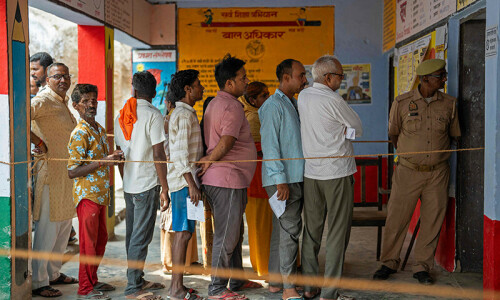WASHINGTON: The United States and Pakistan are likely to discuss the future of drone attacks during Army Chief Gen Raheel Sharif’s visit to this country, according to the US Army Times newspaper.
Gen Sharif is coming to the United States on Nov 16 on a week-long visit for talks on future ties between the two militaries.
The US Army Times noted in an article that this would be the first visit by a Pakistani army chief since October 2010, when relations between the two militaries began to deteriorate. This will also be Gen Sharif’s first visit to the United States as the army chief.
Know more: Nisar seeks permanent halt to drone strikes in Pakistan
Daniel Markey of the Council on Foreign Relations, Washington, told the newspaper that Gen Sharif was likely to discuss “how the US campaign of using drones to attack targets in Pakistan should continue after the United States draws down its forces in Afghanistan this year”.
The newspaper noted that the United States has now been targeting the Pakistani Taliban, a mutual enemy of the two countries.
“The question is what Pakistan will do if the US attacks groups such as the Haqqani network,” the newspaper asked.
Mr Markey said that Gen Sharif would also like to discuss Pakistan’s deteriorating relationship with India.
Gen. Sharif “will probably want to make a case to Washington that it’s in our interest to get the Indians to calm down,” he said. “I’m not sure how successful he’ll be on that score.”
Gen. Raheel Sharif is expected to meet US Defence Secretary Chuck Hagel, Gen. Martin Dempsey, chairman of the Joint Chiefs, Gen. Lloyd Austin, chief of US Central Command and other key officials of the Obama administration.
Shuja Nawaz, director of the South Asia Center at the Atlantic Council, Washington, said the two sides would try to rebuild once close relationship between the two militaries.
“This is a rebuilding of the relationship from the depths it fell into in 2011 and 2012,” he said.
Mr Nawaz, who has written a much-acclaimed book on Pakistan Army, said he believed “foremost on Gen. Sharif’s mind will be the future of Pakistan’s relationship with the US after 2016,” when the US is expected to remove almost all its troops from Afghanistan.
The newspaper noted that the United States had been reimbursing the Pakistani military for its counter-terrorism operations along the Afghan border. Pakistan deployed more than 150,000 troops in Fata, after the US invasion of Afghanistan in late 2001.
Earlier this year, Pakistan increased the troops to 170,000 when it launched an offensive in North Waziristan.
“Along with this closure of the battle in Afghanistan, the coalition support funds will also dry up, so there will be need to craft a new system to provide any support,” said Mr Nawaz.
“And he will have to make a case — not just with his military counterparts, but with people in the [Obama] administration and on [Capitol] Hill,” because “there doesn’t seem to be a great deal of enthusiasm on the Hill for continuing that relationship”, he said.
Jason Campbell of the Rand Corporation, another US think-tank, told the Army Times that unlike past Pakistani military leaders, Gen Sharif believed the internal threats to Pakistan’s security were more dangerous than external ones.
“He had a role in changing the way that the Pakistani military trains and prepares,” Mr Campbell said.
According to him, Gen Sharif was ‘influential’ in turning a large conventional force trained to fight India into a counter-terrorism and counter-insurgency force.
This force, Mr Campbell noted, was equipped to deal with the internal threat as well.
Gen. Sharif “brings a new mindset to his position. I think it’s one that conforms pretty well with the way US strategists see the threats in the region”, he said.
Mr Markey said that Gen. Sharif would also discuss with his US counterparts the Pakistani military’s progress against the Taliban in North Waziristan.
He noted that while the offensive in Fata was successful, the Pakistani military believed that the Pakistani Taliban had established “reverse safe-havens” inside Afghanistan.
Published in Dawn, October 30th , 2014











































